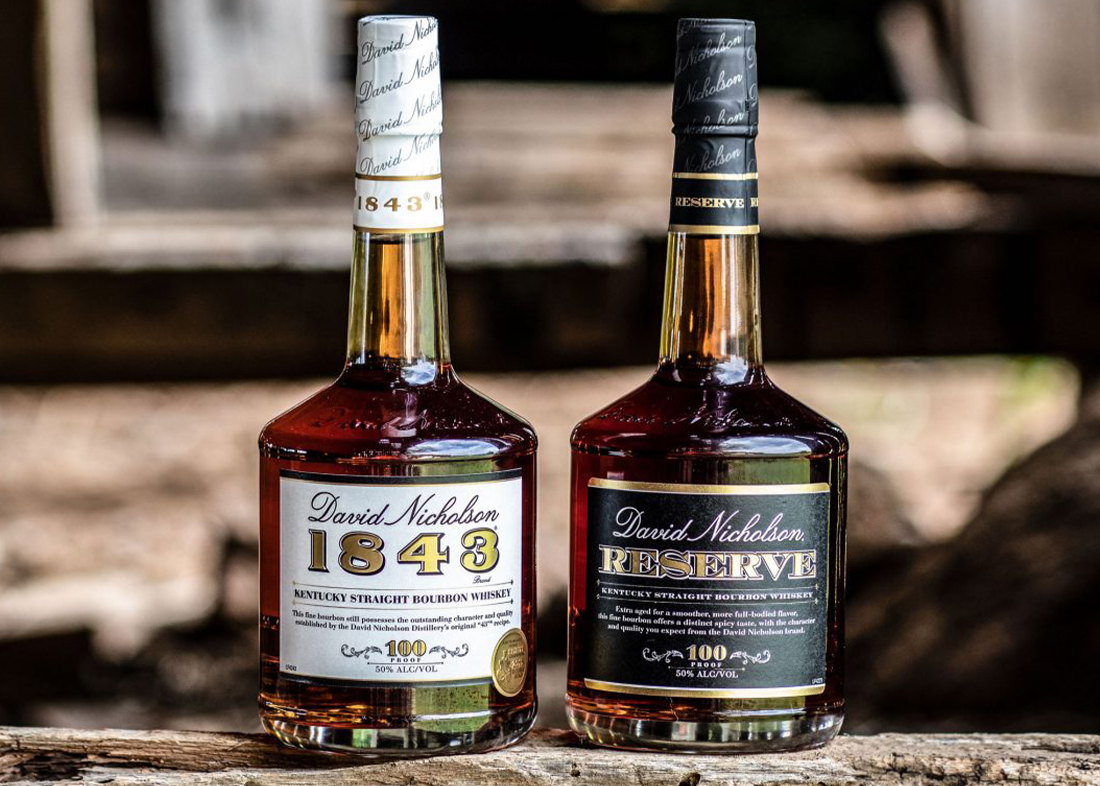
No two bourbons taste alike, but what is it exactly that gives each its unique flavor and feel?
Perhaps the biggest impact on flavor is the leading grain used in its mash. The sweetness of all bourbons comes from the corn composition found in every recipe’s mash bill, but it’s the distiller’s special concoction of other ingredients that gives their spirit a signature taste.
David Nicholson comes in two distinct flavor profiles. Which does your palate prefer?
1843: Soft and Subdued
David Nicholson 1843 features a wheated mash bill that delivers an exceptionally smooth flavor and finish. Using wheat in the mash gives 1843 a certain earthiness and lightness with rich aromas of honey and butter accented with hints of vanilla and oak.
Upon sipping, you’ll notice that wheated bourbons like 1843 have a subdued head followed by woody and smoky tones, finishing with the long, warm touch of spice bourbon enthusiasts so do enjoy. The soft nature of wheated bourbons make them popular amongst those who prefer to take theirs neat or on the rocks.
Reserve: Spicy and Strong
Unlike 1843, our David Nicholson Reserve is distilled from a mash bill that features rye as its forward flavor grain. This extra-aged, 100 proof ryed bourbon has a full-bodied flavor with a bold, distinctly spicy taste profile.
The first thing you’ll find when experiencing the Reserve is the aroma. Unlike wheated, ryed bourbons are much more aromatic and “in your face.” Scents of vanilla and honey with smoky undertones hit the nose well before the bourbon hits the taste buds. Once it does, Reserve invokes the woody tastes you’d expect and finishes with hints of caramel, oak, and mild spice.
A Bourbon for the Ages
It’s been said that bourbon should be used like a tool in the way a tool is milled to serve a very unique function. In the same sense, so too should the bourbon you sip be chosen based on the type of unique drinking experience you’re hoping to effect.
Whether the occasion calls for a soft and smooth wheated 1843, or one that demands the spicy robustness of Reserve, you’ll understand why David Nicholson is called “a bourbon for the ages” upon your first sip of either recipe.



